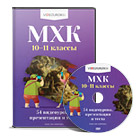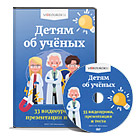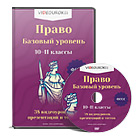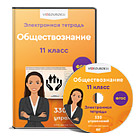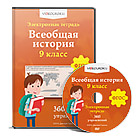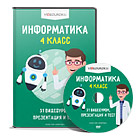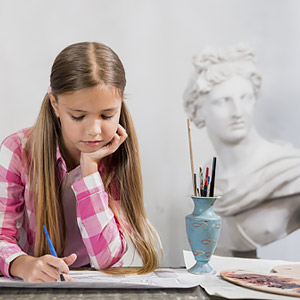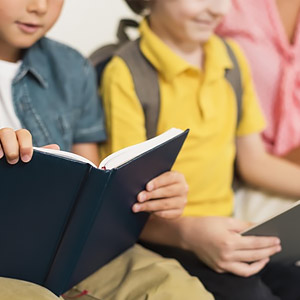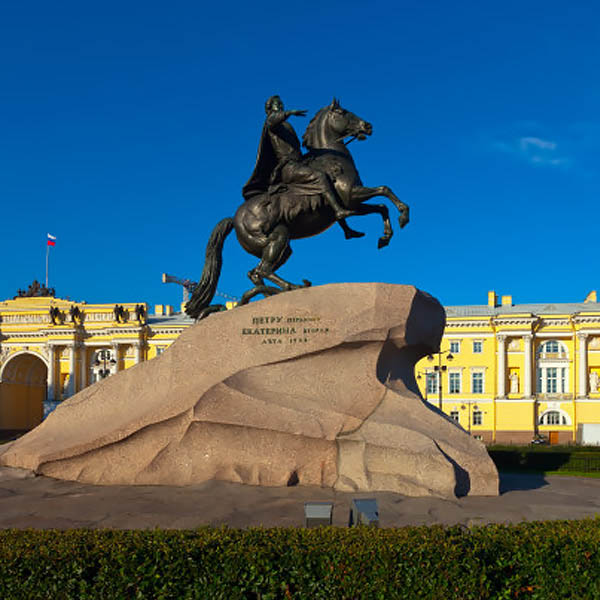New York Science Journal 2022;15(4) http://www.sciencepub.net/newyork
Improvement of technology developing pedagogical responsibility for future teachers
Nasibahon Abdullaeva Jurahanovna 1 Abdurakhmonov Botirjon Mirzamahmudovich 2
1. Head of General Pedagogy department, Andijan state University, Uzbekistan
2. Department of Geography, Namangan state University, Uychi street 160136, Uzbekistan
[email protected]
Abstract: the article is about a type of pedagogical responsibility specific to prospective students, and general suggestions for learning about it. At the same time, there are brief notes on the teacher's behavior. From now on, the responsibilities of future teachers have been analyzed through technology examples.
[Abdullaeva N. Abdurakhmonov B. Improvement of technology developing pedagogical responsibility for future teachers. N Y Sci J 2022;15(4):1-8] ISSN 1554-0200 (print); ISSN 2375-723X (online) http://www.sciencepub.net/newyork. 1. doi:10.7537/marsnys150322.01
Keywords: teacher, pedagogical responsibility, behavior, profession, pedagogical service, qualified specialty, innovative program
1. Introduction
Consistent reforms are being carried out in our country to develop the education system on the basis of the rich intellectual heritage and universal values of the people, national cultural and historical traditions, to develop a new generation capable of creative and social activity, to solve future problems independently. As a result, the share of non-traditional pedagogical approaches aimed at educating responsible, enterprising, courageous young people for the future of the country, the use of person-centered educational technologies is growing. It should be noted that the main factor in the organization of the educational process is education and upbringing. Because if its development and improvement in any society depends on the priority, perfection and efficiency of the education system in that society, the culture, attitude, interactions of people in the society depend on the degree of responsibility of the upbringing in that society.
Today, every teacher tries to use non-traditional methods of teaching in their work. To do this, the implementation of teaching using new, effective, improved technologies, testing it in practice and in the process to improve the "digestion" technology requires teachers to be responsible for improving the "digestion" technology, without changing the education system. Today the activity of the teacher is focused on the effective solution of the tasks of the learning process. To achieve this goal, it is necessary to optimize the content of subjects and take a responsible approach to strengthening the independent creative activity of students. [1. P.25]
2. Material and Methods
The competence-based approach is a method of modeling learning outcomes and presenting them as quality standards for higher education. The results are understood as sets of competencies, including knowledge, understanding and skills of the student, which are determined both for each module of the program and for the program as a whole.
Competence is the ability to integrate knowledge and skills, ways of using them in the context of changing requirements of the external environment.
Problems of professional competence are reflected in the works of domestic teachers and psychologists: L. M. Mitina, A. K. Markova, D. S. Savelyev, etc. The professional competence of a teacher is considered in modern research as “the unity of his theoretical and practical readiness to carry out pedagogical activities and characterizes his professionalism”.
Professional competence is the result of professional training and is considered as an integral characteristic of a specialist's business and personal qualities, reflecting the level of knowledge, skills, experience sufficient to achieve the goal of this type of activity, as well as his moral position.
According to L. M. Mitina, the concept of "pedagogical competence" includes knowledge, abilities, skills, as well as methods and techniques for their implementation in activities, communication, development (self-development) of the individual. In other words, the pedagogical competence of a teacher is understood as a harmonious combination of knowledge of the subject, teaching methodology and didactics, as well as the skills (culture) of pedagogical communication.
According to A.K. Markova, a teacher's work is considered competent, in which pedagogical activity, pedagogical communication is carried out at a sufficiently high level, the teacher's personality is realized, and good results are achieved in the training and upbringing of schoolchildren. At the same time, the teacher's competence is also determined by the ratio of his professional knowledge and skills, on the one hand, and professional positions, psychological qualities, on the other. [3. P.251].
3. Results
Upbringing is a complex process that has long involved prominent members of society. This means that the upbringing of the younger generation, the content of its organization is important not only in determining the maturity of the individual, but also the development of society.
From the above points of view, it is possible to understand the content of the requirements for the personality of today's teacher. What does a modern teacher look like? From the first days of independence, many educators and psychologists have expressed their views on this issue. Methodical manuals and recommendations have emerged to further improve the professional skills of teachers in accordance with our national traditions and values, to shape their pedagogical activity at the level of modern requirements. Scientific research on this issue is still ongoing.
In the 21st century, the role of the teacher is becoming more sophisticated. Nowadays, global changes, the daily development of science and technology and information and communication technologies require a teacher to have high skills, sharp will, psychological strength, deep knowledge and insight.
In addition to the knowledge of his specialty, a modern teacher, has pedagogical and psychological knowledge, as well as specialized knowledge in various fields of science, professional training, high moral qualities, working in educational institutions. is the provider. In this regard, the following duties and responsibilities are currently required of teachers:
1. A teacher is first and foremost a responsible educator, an experienced speaker, and a promoter of culture and enlightenment.
2. The teacher should be able to love students by nature, to connect their love and feelings with the inner world of students at all times, and to earn their love and respect.
3. The teacher has a deep understanding of the changes taking place in the social life of society, the essence of the ongoing socio-economic reforms and is able to provide students with accurate and reliable information in this regard by making an objective assessment of them. should.
4. The modern teacher is required to be aware of the innovations and achievements of science, technology and information and communication technologies.
5. The teacher must have a deep and thorough knowledge of his specialty, master the integration of all disciplines, while conducting continuous research on himself.
6. The teacher must have a thorough knowledge of the basics of pedagogy and psychology, organize educational activities, taking into account the age and psychological characteristics of students.
7. The teacher should be able to effectively use the most effective modern forms, methods and tools of education and upbringing in their professional pedagogical activity.
8. A teacher is a creative person, an initiator of educational activities and a person responsible for the future of the younger generation.
9. In the course of his professional activity, the teacher must have a high level of pedagogical skills, communicative ability, in-depth mastery of the rules of pedagogical techniques (speech, facial, limb and body movements, facial expressions, pantomime, tact).
10. The teacher should have a culture of speech; his speech should reflect the following characteristics:
- free from various dialects and expressed only in literary language;
- The teacher's speech is simple, fluent and clear;
- be able to use wise sayings, phrases and proverbs, proverbs and quotations.
11. The culture of the teacher's dress is unique, that is, simple, neat, well-groomed, does not use various ornaments (gold, silver jewelry) that quickly attract the attention of the student in the educational process, it is required to dress according to the season, age, body structure, facial features, and even hair color and style.
12. The teacher is the main organizer of the class community in the educational institution and the most active participant in the ongoing reforms in the field of education.
13. The teacher must not forget that he is an active participant in the process of pedagogical communication. Therefore, in his professional activity it is necessary to constantly develop a number of qualities of pedagogical skills.
14. First of all, the teacher must be thoughtful, calm, able to correctly assess any pedagogical situation and be able to independently resolve existing conflicts.
Teachers need to keep in mind that in communicating with students, parents, and peers, it is important to be clear and concise. In dealing with them, they should not start by quoting arguments about negative situations, but rather acknowledge the success of students (or colleagues, parents) and organize communication in a way that gives them confidence to enrich themselves. In the process of communication, the teacher's words should show kindness, sincerity, friendliness and good mood to the interlocutor.
A teacher's image that meets these requirements will ensure that he or she has a good reputation among students, colleagues, and parents.
In today's world, the demands of society on the teaching profession are growing day by day, and it is up to the teacher to organize these requirements in practice. A modern school teacher performs a number of tasks. The teacher is primarily the organizer of the educational process in the classroom. As a teacher, a teacher should know the following requirements:
• knowledge of the essence of the ideology of national awakening and universal values in the spiritual and educational upbringing of the individual, upbringing children in the spirit of loyalty to the ideas of independence, love for their homeland, nature and family;
• have a thorough knowledge of the profession, as well as be aware of a variety of knowledge;
• excellent knowledge of young pedagogical psychology, pedagogy and psychology, youth physiology, methods of educational work, school hygiene;
• keep abreast of the latest developments in the world of science, educational technology, computer and information technology;
• improving skills and competencies in teaching methods;
• creative approach to their profession;
• have pedagogical techniques (logic, expressive means of speech education) and pedagogical tact;
• continuously improve their knowledge and pedagogical skills.
To be successful, every teacher must have pedagogical skills. The basic law of pedagogical skill is to achieve great results with little effort. Creativity will always be with him. Only a person who is interested in pedagogical activity, capable and talented, develops the qualities of pedagogical skills. Pedagogical activity is creative in nature. The teacher shapes the student's personality, makes independent decisions in unexpected situations, solves pedagogical problems, manages the learning process independently. It all has to do with the essence of creativity, the purpose and the nature of the work.
In educational activities with students, teachers need to involve children in the collaborative process in order to achieve a specific goal. The teacher has the following responsibilities in order to engage students in collaboration:
• In order for a collaboration to take place, the activities that need to be organized in the team must be interesting to the students, appropriate to the age and interests of the students;
• When engaging students in a task, the teacher tells them must set pedagogically and psychologically correct tasks, provide guidance;
• When students begin to complete an assignment the teacher acts as both a participant and a consultant at the same time.
A creative teacher should not only be able to successfully teach and nurture children, learn from the work experience of advanced teachers, but also have research skills and competencies. It is necessary for a modern teacher to use the latest achievements of science and technology, to effectively use new pedagogical technologies in their professional activities.
The structure of the teacher's activity
Pedagogical skills teach teachers and educators pedagogical creativity, pedagogical techniques, interaction between teachers and students in the educational process, communication tactics, speech culture, thinking, spiritual and enlightenment of the educator and organization and implementation of educational work, in the process teaches the features of curbing behavior and emotions, and provides information about the system of pedagogical activities that develop their profession. Pedagogical skills develop at the heart of teachers' pedagogical work.
Pedagogical activity is the work of specially trained teachers who are responsible to the society and the state for preparing the younger generation for life and work. Prospective teachers should be aware of the following components of their teaching process:
The structure of the teacher's activity:
Purpose of the teacher's activity
The object and subject of the teacher's activity
A tool for teaching
A teacher who does not understand the essence of the pedagogical process and does not have a deep respect for the child will not have an idea that will ensure the effectiveness of education and human development. The task of the pedagogical process is to educate, nurture, develop, and determine the criteria for the activities of teachers. The work of teachers is a tool of the pedagogical process. The objects of the pedagogical process are the responsibility of the pupil, the student and the group of students and the individual student, the subjects of the pedagogical process - parents, teachers, educators, the class team, the pedagogical team and they carry out educational and upbringing activities in accordance with the requirements of society. The success of a teacher in his / her pedagogical activity is determined by the extent to which he / she is able to apply his / her work skills in his / her life and practice.
There can be no competence without pedagogical responsibility for the results of one's labor. The analysis of the structural elements of competence proposed by different authors allows us to conclude that among the many components of pedagogical competence, pedagogical responsibility deserves special attention, which characterizes the level of the teacher's professional and ethical culture, acting as a regulator of his professional behavior. Pedagogical responsibility for the results of one's work is expressed in the ability to foresee the consequences of one's professional actions and to make the right choice. Formed as a pivotal quality of the personality, pedagogical responsibility is a constant motivator for the teacher's behavior in the process of fulfilling his professional duties. This means that outside the formation of professional responsibility, the professional orientation of the individual cannot be formed either.
In the competence-based approach, the list of required competencies is determined in accordance with the requests of employers, the requirements of the academic community and broad public discussion based on serious sociological research. Mastering various kinds of competencies becomes the main goal and result of the learning process. Competencies and competency-based approach are central to the quality management system of education. Essentially, education quality management begins with determining the composition of key competencies that should be mastered in the educational process as educational results.
4. Discussions
Considering the professional competence of a primary school teacher, it should be noted that one of its constituent parts is competence in assessing the educational achievements of schoolchildren.
The control and evaluation activity of a primary school teacher has its own specifics. The results of the study of the problem allowed us to single out five groups of control and assessment skills necessary for a future primary school teacher.
Group 1 - the ability to highlight the goal, objectives and object of control.
Group 2 - the ability to plan control: the ability to motivate control in the course of educational activities, to establish a correspondence between the goals and the content of control tasks, to determine the availability of the necessary knowledge to perform educational actions, to select material for control in accordance with the intended goals, to choose the most rational methods, forms, methods and means of control.
Group 3 - the ability to organize control: the ability to formulate and ask questions, observing their clear logical sequence and continuity; to create a high level of educational and cognitive activity of students when testing their knowledge and skills; to diversify the methods and forms of control in the course of the pedagogical process; the ability to maintain the attention of students during the survey, to distribute attention between the respondents and the class as a whole; be attentive to the student's answer; involve younger students in assessment activities, form their knowledge of assessment criteria and self-assessment skills; the ability to create a favorable environment in the process of testing the knowledge and skills of students, to comply with pedagogical tact.
Group 4 - the ability to evaluate the results of control: the ability to master the generally accepted criteria for assessing the educational activities of schoolchildren and create new systems of indicators, structures and algorithms, mechanisms for assessing the results of learning activities; to carry out a reasoned assessment of the educational and cognitive activity of younger students; motivate the assessment, taking into account the individuality of the student; to express the result of the assessment in a certain form of assessment.
Group 5- the ability to correct the results of educational activities: the ability to identify the causes of errors and determine the ways to eliminate them; make adjustments based on valuation activities; exercise self-control. At present, the Federal State Educational Standard of Higher Professional Education (FSES HPE) acts as the main objective measure of control and assessment of the effectiveness of professional training of students, which is the basis for the development of training content in the form of a basic educational program, curricula, textbooks and manuals for students.
5. Summary
The system of skills required for effective pedagogical activity of teachers: knowledge, understanding of the child, observation, speaking skills, organization, foresight, attention, accurate assessment of the situation, emergence timely resolution of any possible conflicts, interest of students in learning.
From the content of this discipline to manage the educational process to solve tasks and objectives of the profession, to approach it from the point of view of pedagogical and psychological education, to model education on the basis of modern methods in the spirit of our national traditions, - Information on the need for teacher skills for the implementation of advanced pedagogical technologies in the educational process and systems for their improvement.
Corresponding Author:
Abdurakhmonov Botirjon
Department of Geography, Namangan state University, Uychi street 160136, Uzbekistan Telephone: 998-231-7612
E-mail: [email protected]
References
1. Rakhmonova D.М. Introducing innovations in The Preschool Education System with Talented Children. 300 middle European scientific bulletin issn 2694-9970.
2. Actual problems of modern science, education and training Rakhmonova D.М. Psychological basis of working with talented children 2/101.
3. Raxmonova D.M. Technology of preparing children for school "Improving the quality of education: problems, solutions and prospects" (Bukhara experience) Republican scientific-practical conference VXTB and Bukhara State University in May 2020, Page 454.
4. Ш.К. Хужамбердиева Изучение творчества Эркина Вахидова в академических лицеях и профессиональных колледжах Культура. Духовность. Общество
5. Rakhmonova D.М. Academicia: issn: 2249-7137 vol. 10, issue 11, november 2020 impact factor: sjif 2020 = 7.13 ways to determine talented children in preschool education 10.5958/2249-7137.2020.01534.7
6. Akhmedova Mehrinigor Bahodirovna, “Problems in translating the concept of "spirituality" ”, IEJRD - International Multidisciplinary Journal, vol. 6, no. TITFL, pp. 290-295, Apr. 2021.
7. Bakhronova, M. A. (2020). Representation of disease names in the literature. ISJTheoretical & Applied Science, 06 (86), 141-144.
8. J.I.Mizrabova and M.A.Baxronova, “In the work of William Shakespeare’s ‘hamlet’ the transfer of the names of the disease in different translations”, IEJRD - International Multidisciplinary Journal, vol. 6, no. TITFL, pp. 95-98, Apr. 2021.
9. Rajabova M. B. Goethe and the East //International scientific-practical conference" XL international conference dedicated to the problems of social sciences"(March 31, 2016) Moscow-2016. – 2016.
10. Raxmonova D.M. Interdisciplinary consistency and connection is an important factor in the development of cognitive processes of students’ Republican scientific-practical conference "Educational innovations, the use of foreign experience and assessment systems in improving pedagogical skills: problems and solutions" BVXTXQTMOHM April 24, 2020 p.120.
4/15/2022
5
http://www.sciencepub.net/newyork [email protected]





